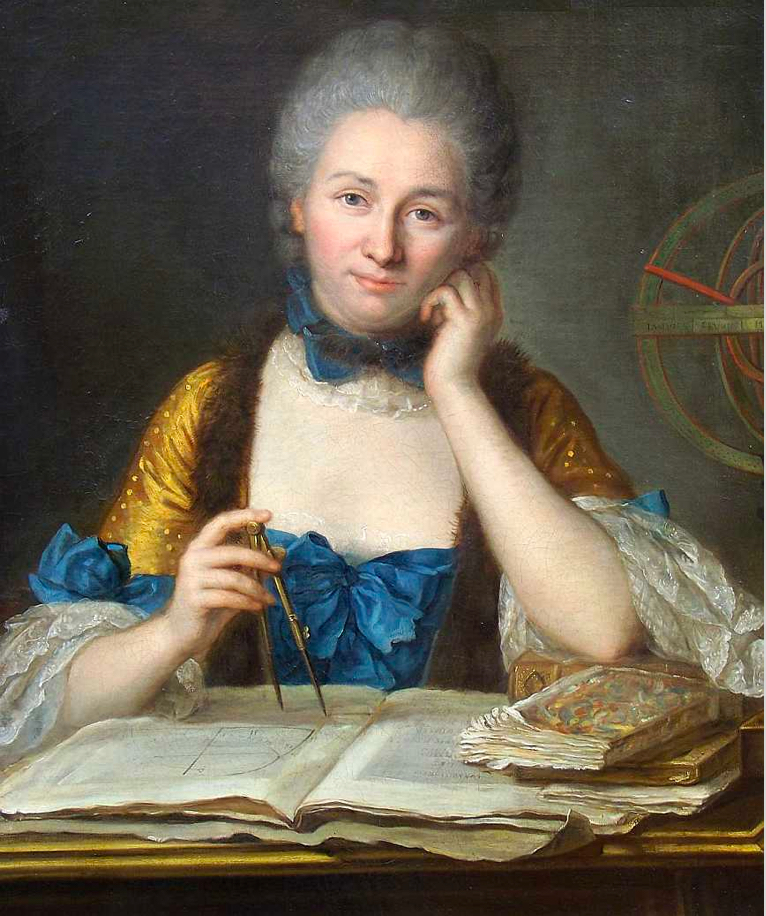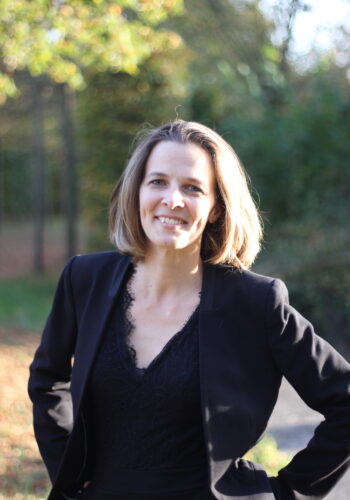Pourquoi la tech ?
Les sciences m’ont attirée très tôt, par culture familiale, par envie de comprendre et d’agir. J’ai choisi les sciences pour pouvoir participer à la construction d’un monde meilleur. Puis mon expérience de la recherche me fit prendre conscience de la différence entre un chercheur et un ingénieur. Il m’apparut clairement que j’étais une ingénieure.
Votre parcours ?
Mon père m’a donné le goût des mathématiques, ma mère celui de la biologie. J’étais curieuse et bonne à l’école.
Mon expérience dans la Police à Evry, lors de mon service à Polytechnique m’a marqué et a conforté mon souhait de m’investir pleinement dans l’action publique.
Au même moment que je découvrais l’industrie, pour laquelle je me suis passionnée.
Après ma formation au Corps des Mines, j’ai travaillé pour l’État sur le développement des entreprises en Occitanie puis j’ai rejoint une entreprise d’électronique axée principalement sur le transport. C’était une expérience passionnante.
Depuis quatre ans, je dirige une association pour développer en France l’industrie liée à la transition énergétique. A l’industrie et la technologie se rajoutent des questions politiques et économiques qui me passionnent tout autant .
Votre première expérience professionnelle dans la tech ?
Ma première expérience professionnelle dans la technologie était lors de mon année de recherche. Nos capacités de recherche étaient extrêmement liées aux technologies. Je manipulais des cellules génétiquement modifiées, avec des microscopes de dernière génération pour observer les mécanismes d’absorption des cellules. La recherche est un monde où l’innovation n’est pas qu’un mot. Le laboratoire dans lequel je travaillais à Cambridge avait une grande partie de ses financements qui provenait d’un seul brevet sur un anticorps monoclonal.
Que faites-vous aujourd’hui et pourquoi ?
Aujourd’hui, je dirige une association qui rassemble État, industriels et associations pour faire de la transition énergétique une opportunité de réindustrialiser la France. Je suis convaincue qu’avoir une industrie dynamique est vitale pour un pays, pour assurer des emplois à ses citoyens, pour acquérir collectivement de la richesse et par là-même la capacité de défendre ses valeurs démocratiques et environnementales.
Un de nos grands défis actuels : avoir suffisamment de techniciens, ingénieurs, scientifiques pour bâtir effectivement la transition énergétique tout en localisant en Europe l’industrie qui lui est liée.
Vos atouts pour ce poste ?
Ma curiosité, notamment scientifique, me pousse à explorer toujours plus finement le sujet énergétique dans ses différentes dimensions.
Ma formation m’a donné une certaine confiance en moi et côtoyer la recherche scientifique m’a appris l’importance du doute méthodique. J’essaie d’avoir dans ma vie de tous les jours le bon équilibre entre le doute et l’action. Cela me pousse toujours à bien m’entourer.
Enfin, mon goût du contact et de l’action m’aide à mettre en relation les personnes et les dynamiques.
Je crois qu’Umberto Eco a dit un jour qu’apprendre une nouvelle langue c’était apprendre une nouvelle façon de voir le monde. Je pense que c’est la même chose avec nos expériences professionnelles. J’ai eu la chance de côtoyer le domaine de la recherche et la technologie, d’avoir des responsabilités au sein de l’État et de diriger un business unit dans une Entreprise de Taille Intermédiaire (ETI). Grâce à ces trois expériences, je parle trois langues étrangères, trois façons de voir le monde. Et j’interagis aujourd’hui avec ces trois domaines pour essayer de faire de la transition énergétique une opportunité pour réindustrialiser la France.
Vos défis passés, vos ratés, vos grands moments de solitude ?
Être la seule femme, seule personne de moins de 55 ans dans un comité exécutif exclusivement masculin de plus de 55 ans fut un vrai challenge. Nous sommes contraintes de nous affirmer, tout en gardant le doute méthodique qui est aussi notre force.
J’ai été profondément marquée par le fait de ne pas trouver de jeunes techniciens et ingénieurs en électronique de puissance alors qu’il y a un vrai besoin, que le marché est là et qu’il va continuer à se développer. Nous avons cruellement besoin de mieux faire connaître la technologie et l’industrie.
Vos meilleurs moments, les succès dont vous êtes fière ?
Au moment de la création le comité stratégique de filière Nouveaux systèmes énergétiques, un collègue d’un autre comité m’avait dit qu’il pensait ma tâche impossible. Aujourd’hui, plus de 1 200 personnes s’investissent au sein de notre Comité stratégique. Je me réjouis de voir des participants ravis de travailler dans une démarche qui dépasse les intérêts directs de leur entreprise. Nous avons réalisé 80% des actions prévues et notamment promu l’hydrogène dans le plan de relance. J’ai beaucoup appris des membres du conseil d’administration et des contributeurs.
Des personnes qui vous ont aidée/marquée ou au contraire rendu la vie difficile ?
Je pense tout d’abord à certaines personnes qui ont marqué ma jeunesse, des enseignants exceptionnels en chimie, biologie, économie… un animateur de club de sciences. Ils ont nourri ma curiosité et m’ont fait grandir.
Au niveau professionnel, j’ai eu l’immense chance de travailler avec des collègues et des personnalités politiques ou industrielles qui m’ont beaucoup apporté professionnellement et personnellement. Je leur en suis très reconnaissante.
Vos envies et défis à venir ?
Nous faisons face à des épisodes de profonds changements, qui risquent d’être de plus en plus fréquents. Je suis convaincue que les jeunes en ont une conscience plus aiguë et je souhaite m’investir plus fortement dans la transmission auprès des jeunes.
Et que faites-vous en dehors de votre travail ?
J’accompagne mes deux enfants à devenir des adultes épanouis, curieux et engagés.
Vos héroïnes (héros) de fiction, ou dans l’histoire ?
Marie Curie, Simone Veil sont des exemples pour moi. Leur engagement, leur persévérance, leur capacité à inventer de nouveaux possibles, chacune dans des domaines différents, sont des sources d’inspiration.
Votre devise favorite ?
Il faut toujours viser la lune, car même en cas d’échec, on atterrit dans les étoiles.
Oscar Wilde
Un livre à emporter sur une île déserte ?
L’éloge de la fuite d’Henri Laborit.
Un message ou un conseil aux jeunes femmes ?
Croyez en vous et osez vivre vos rêves


